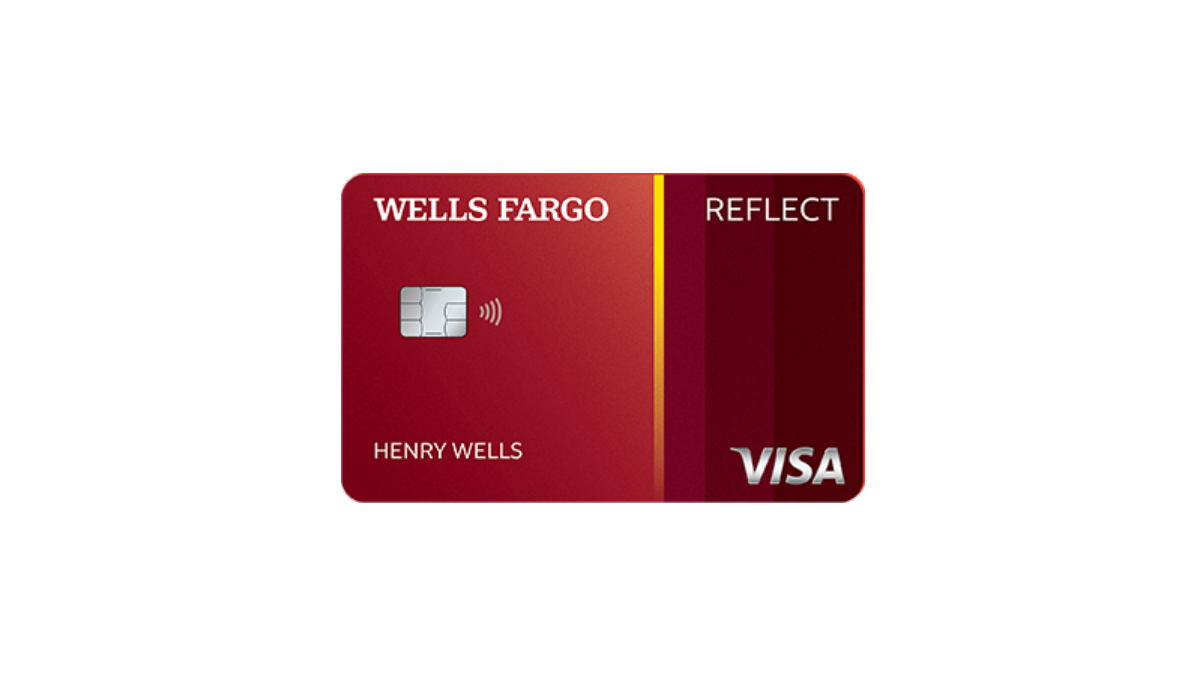Finances
8 Different Types of Credit Cards
Learn about different types of credit cards and how they fit your lifestyle. From cash-back to travel, find cards that offer rewards, build credit, or support business expenses.
Advertisement
Discover the ideal card that suits your specific needs!

Exploring the types of credit cards can change how you manage your finances. From cash back to credit building, each card has unique benefits tailored to different spending habits.

Is 700 a good credit score?
Is 700 points a good credit score? What advantages do you have access to when you build your credit up to this level? How to keep evolving your score? Read this article and find out!
Dive into our guide to understand how each of these types aligns with your financial goals. Discover the card that not only fits your lifestyle but also enhances your spending power.
8 types of credit cards
Wondering about the different types of credit cards and their advantages for you? Let’s dive in and explore their features to help you make a choice that aligns with your financial needs.
You will be redirected to another website
You’ll receive messages for less than 1 week, with a maximum of 1 message per day. You can unsubscribe anytime by replying STOP. By submitting this form, I confirm that I am 18+ years old and agree to the Privacy Policy and Terms and Conditions. I also provide my signature, giving express consent to receive informational messages via automated emails, SMS, MMS text messages, and other forms of communication. Message frequency may vary as part of our good-faith effort to respond to your inquiry. Message and data rates may apply. Text STOP to cancel. I understand that my consent to receive communications is not a condition of purchase and that I may revoke my consent at any time.
Standard Credit Cards
Within the array of types of credit cards, you’ll find the standard variety. These cards are for those seeking simple credit solutions without the complexity of rewards or annual fees.
Furthermore, standard credit cards are perfect for everyday use, offering basic, easy-to-understand management. They offer an uncomplicated approach to credit spending.
Lastly, these cards often come with the essential features of credit, such as a line of credit and regular billing cycles. They provide a solid foundation for those new to credit.
Premium Credit Cards
Among various types of credit cards, premium cards are synonymous with exclusivity and luxury. They are tailored for high-income consumers and offer a range of high-end benefits.
Moreover, these cards come with higher credit limits and a substantial annual fee, making them suitable for those who spend significantly and value luxurious experiences.
However, premium cards are not just about spending but also about the overall experience. They provide a level of comfort and convenience that justifies their cost for the right user.
Rewards Credit Cards
Rewards credit cards are a popular option among the types of credit cards, offering an incentive on purchases in the shape of points, miles, or cash back.
These cards are particularly favorable for people who want to earn rewards for their regular spending. Cards vary in their focus, with some highlighting travel and others dining or groceries.
Also, the rewards from these cards can be substantial. Points can be redeemed for merchandise, miles can go towards airlines, and cash back can be redeemed as cash.
Commonly, these credit cards provide rewards such as:
- Points: Earn on every purchase, redeem for goods, travel, or gift cards.
- Miles: Best for travel purchases, use for flights or hotel bookings.
- Cash Back: Get a percentage back on spending, flexible redemption options.
- Travel Rewards: Specialized for travel expenses, often with extra perks.
- Dining Rewards: Higher returns on dining out, ideal for food enthusiasts.
- Grocery Rewards: Earn more on supermarkets, great for everyday spenders.
- Gas Rewards: Extra benefits for fuel purchases, perfect for regular commuters.
Balance Transfer Credit Cards

Balance transfer credit cards serve as a tactical financial instrument for debt consolidation and management. They offer low or zero percent introductory APRs for a set period.
Furthermore, these cards enable users to shift existing balances from different credit cards. This consolidation can simplify finances and provide a clearer path to paying down debt.
In the realm of credit card types, these are top-tier for managing debt effectively. With intro offers usually lasting 6 to 21 months, they’re a smart choice to ease your financial burdens.
Specialized Credit Cards
Specialized Credit Cards cater to very specific needs and are an essential part of understanding the different types of credit cards available.
Student Credit Cards
Student cards are tailored for young adults stepping into financial independence. They often come with features that match a student’s lifestyle, like rewards for groceries or dining out.
These credit cards also advocate for wise spending, a key factor for students with minimal credit backgrounds. They’re tools for managing expenses and learning about credit.
Furthermore, student credit cards often offer incentives such as cash back on academic-related purchases, making them a smart choice for budget-conscious students.
Business Credit Cards
Business cards are made for the special needs of business owners. They make it easier to keep personal and business spending apart, which helps with managing finances.
These types of credit cards offer rewards and extra benefits for spending on business things like travel, supplies, or phone services, adding extra value to business purchases.
Moreover, business credit cards can provide valuable cash flow management tools, with features like higher credit limits and detailed monthly statements.

Credit cards for fair credit: choose the right card for you
If you have a fair credit score, it's important to choose the right credit card. We've compiled a list of six excellent cards that will help improve your credit rating.
Secured Credit Cards
Secured credit cards are an excellent choice for anyone looking to establish or repair their credit history. These cards necessitate a security deposit, usually determining the credit limit.
These cards are especially beneficial as they report to credit bureaus, aiding in the development of a positive credit history through responsible usage and timely payments.
Additionally, secured cards often have lower fees compared to unsecured cards for bad credit, making them a cost-effective option for those focused on improving their credit score.
Prepaid Cards
Prepaid cards differ from standard cards by providing a managed approach to handling funds. Money is loaded onto the card, and you spend only up to its available balance.
These card variants are ideal for budgeting since they help avoid spending beyond your means. They’re also a good choice for those who may not qualify for standard credit cards.
Furthermore, prepaid cards can be useful for specific purposes like travel, gifting, or online shopping, providing a secure and convenient payment method without the need for credit.
How to choose the best credit card for your finances?
Selecting the right credit card for your financial situation requires a grasp of the various types of credit cards and how they match your spending habits and financial objectives.
Whether you’re looking for rewards, low interest, or a way to build credit, selecting the right card is crucial for maximizing benefits and minimizing costs.
Assess Your Spending Habits

Start by assessing how you spend money. Cards that provide rewards for dining out or travel might be useful if those are common expenses for you.
Moreover, if you usually have a running balance, look for a card with a lower interest rate. This could save you money in the long run, especially compared to cards with steeper rates.
Understand Your Credit Score
Your credit score plays a critical role in determining which types of credit cards you’re eligible for. Higher scores often unlock cards with better rewards and lower interest rates.
Moreover, if your score is on the lower side, focus on cards for credit building. They can help improve your score over time, making you eligible for cards with more attractive terms.
Consider Card Fees
Be mindful of fees associated with credit cards. Annual fees might be worth it for cards with significant rewards, but not all cards justify this expense.
Additionally, examine extra costs such as fees for foreign transactions. Depending on your needs, a card with fewer fees might be more cost-effective, even if it offers fewer rewards.
Evaluate Reward Programs
If you’re interested in rewards, examine different programs to see which aligns best with your spending. Certain cards provide greater rewards for specific areas, such as travel or dining.
Also, consider how you’ll use the rewards. If you don’t travel often, a travel rewards card might not be as beneficial as a cash-back card that provides more flexibility.
And if flexibility is what you’re after, why not consider a personal loan? Depending on your needs, they can provide higher limits and lower interest rates in the long-run.
In that sense, the Upgrade Personal Loan shines, offering a streamlined application and quick funding with amounts up to $50,000 and some of the lowest rates in the market.
Intrigued by this alternative financial solution with Upgrade? Then check the following link to learn more details in our comprehensive review!

Upgrade personal loan: find out how to apply!
Learn how to apply for an Upgrade personal loan and get access to up to $50,000 in fixed and predictable monthly fees. Read on to learn more!
Trending Topics

How the Russia-Ukraine war can affect the Stock Market
The Russia-Ukraine conflict already affecting the international stock market. Click and learn how to manage your money in this scenario.
Keep Reading
Managing your mortgage: best tips for a healthier relationship with your money
It's time to talk about managing your mortgage. See these expert tips for staying on top of your payments and keeping your finances healthy!
Keep Reading
Wells Fargo Autograph℠ Card full review: should you get it?
The Wells Fargo Autograph℠ Card earns you points for your everyday purchases for travel and hotel stays. Learn more about this amazing card!
Keep ReadingYou may also like

Wells Fargo Reflect℠ Card: check out how to apply!
0% APR and $600 as insurance for your cell phone: learn how to apply for your Wells Fargo Reflect℠ credit card for these and other benefits.
Keep Reading
Crypto scams: how the rise in online crimes is affecting society
Crypto scams influence not only victims' lives but society as a whole. Understand how these happen and how to protect yourself!
Keep Reading
The debt snowball method: get your finances back on track
The debt snowball method can get you out of debt extremely quickly. Understand how the method I used to pay off my debts works.
Keep Reading